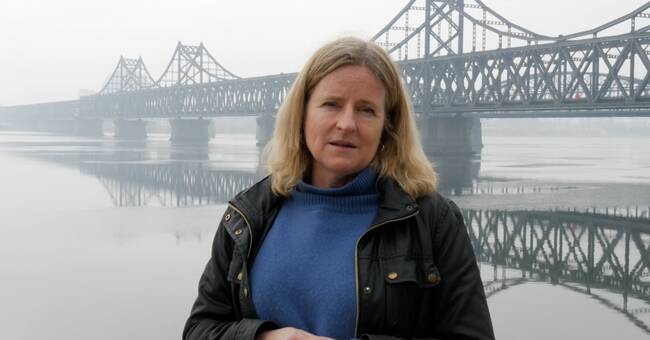Exactly how bad things are in North Korea, however, is impossible to know because no information is coming out anymore.
All the normal sources such as diplomats, journalists and aid workers have left the country.
The only information that is leaked is stories from defectors who have contacts left in the country.
The Swedish embassy is run by locally employed staff on site, as the Swedish diplomats have been relocated to Stockholm.
At present, the Ministry of Foreign Affairs can not give any information on when they will return.
Right now it is basically impossible because the borders are closed and no planes or trains enter the country.
In February, some of the last diplomats were seen leaving.
A spectacular journey on a deserted railway track towards Vladivostok, where a Russian diplomatic family carried children and luggage on a hand-driven dressage.
Sanctions and weeds
The official trade statistics give a glimpse of how serious the situation is.
In 2020, trade with China decreased by 81 percent.
When Covid-19 spread around the world in early 2020, North Korea stopped all imports of staple foods and medicines, as it was worried about getting the infection that way.
This, combined with several years of poor harvests and extensive sanctions against North Korea due to the country's nuclear tests, is deepening the crisis.
What can the outside world do?
South Korea's reunification minister Lee In-young recently spoke at the UN about the situation in North Korea and is now appealing to the outside world to separate sanctions and demands for disarmament from aid.
However, any real change is difficult to see unless China - normally North Korea's main ally - demands that Kim Jong-un prioritize the people this time over the military and nuclear weapons.

